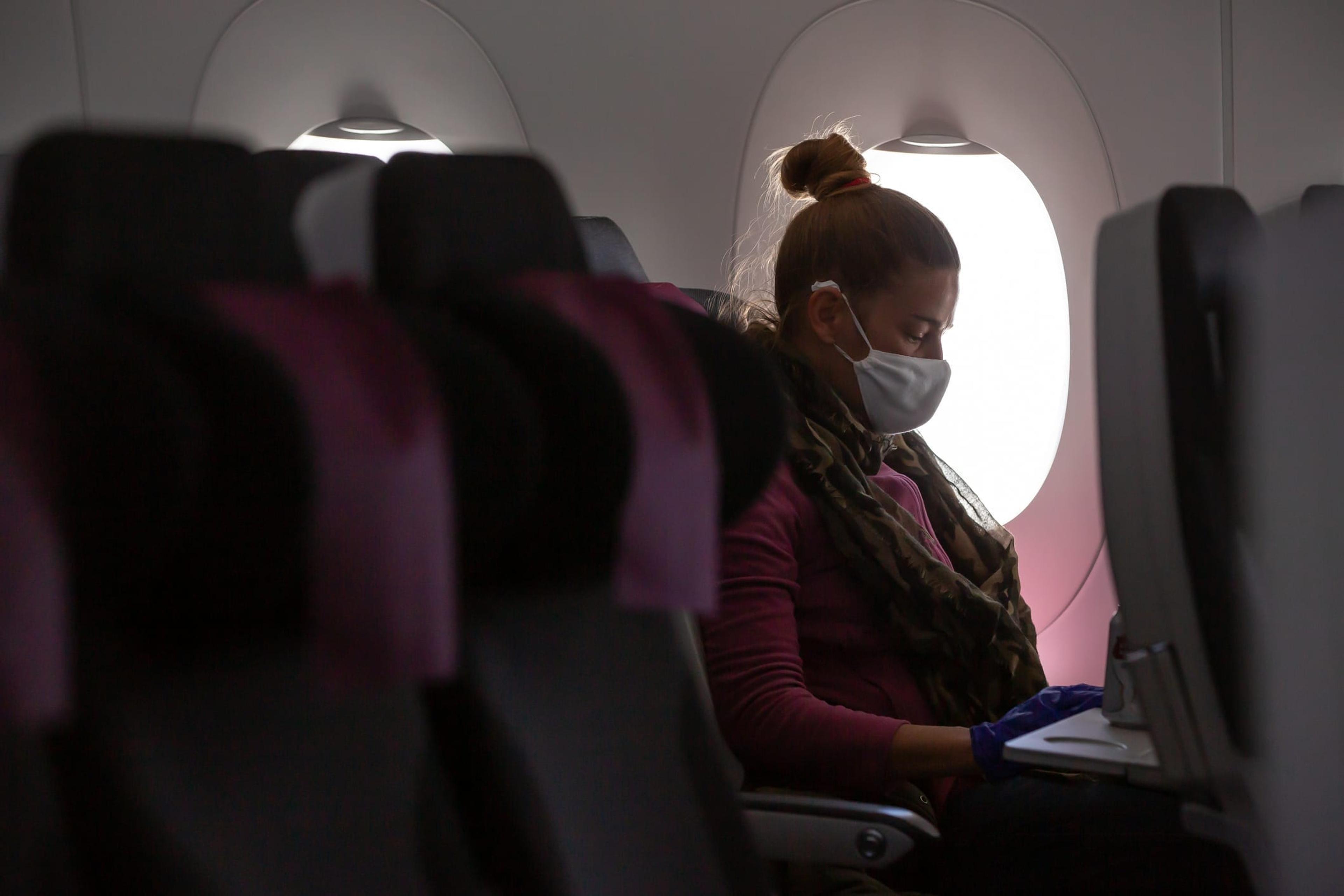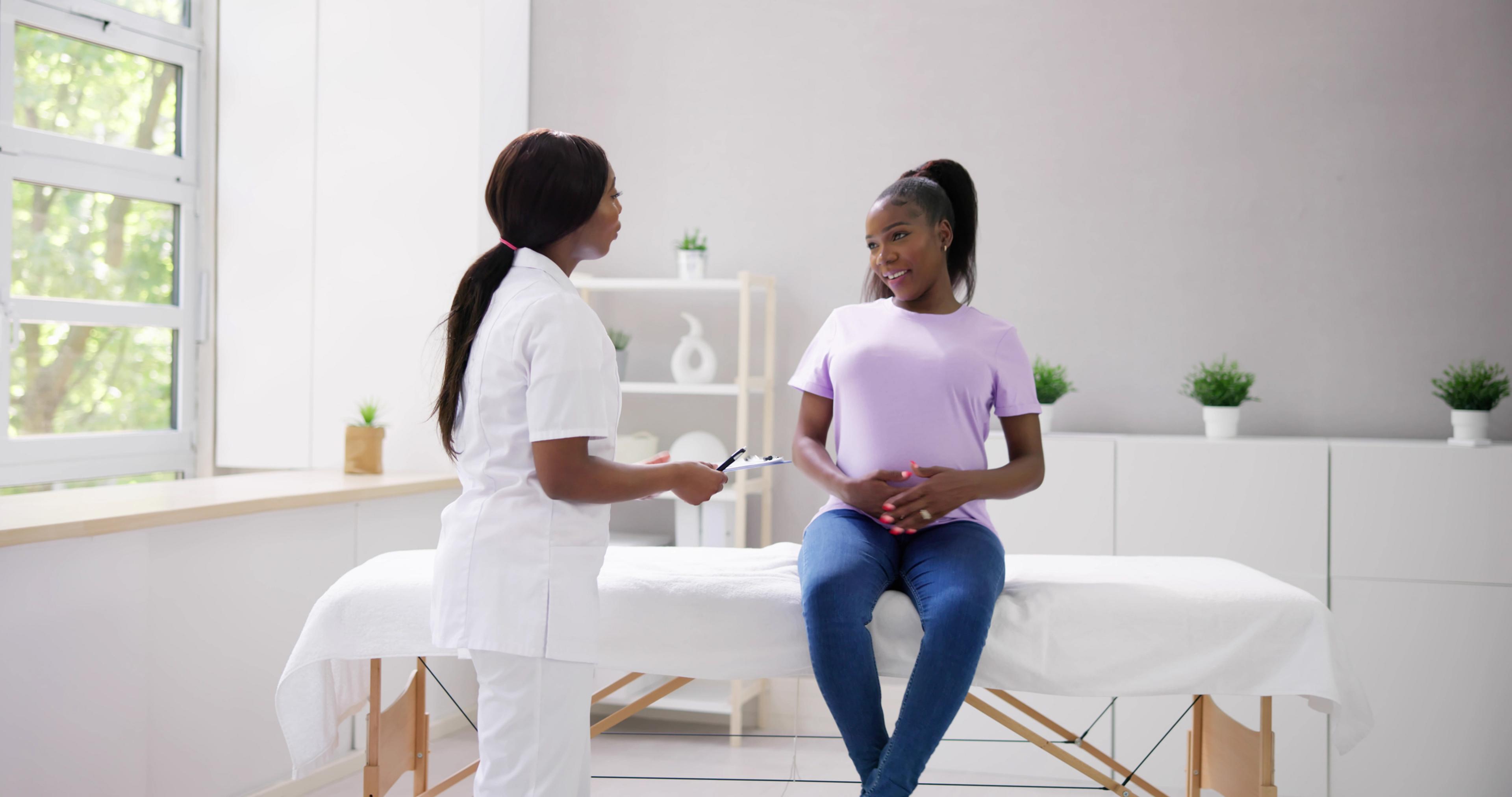5 Questions To Ask Yourself Before Booking A Flight
Amy Barczy
| 4 min read
Amy Barczy is a former brand journalist who authored content at Blue Cross Blue Shield of Michigan. Prior to her time at Blue Cross from 2019-2024, she was a statewide news reporter for MLive.com. She has a decade of storytelling experience in local news media markets including Lansing, Grand Rapids, Holland, Ann Arbor and Port Huron.

Traveling outside of your community during the coronavirus pandemic is a risk that should be weighed carefully, as staying home is the best way to keep yourself and others from getting sick. Cases of the new coronavirus have been reported in all 50 states, and many international travel restrictions are in place. If you must travel by air, here are five questions to ask yourself before booking your flight:
1. Is COVID-19 spreading where you are?
Even if you don’t have symptoms, you may be a carrier of COVID-19 and could unknowingly spread the virus to others during travel.
2. Is COVID-19 spreading where you are going?
You may become infected with COVID-19 while interacting with others during your flight or at your destination. As of Jan. 26, 2021, airline passengers must show proof of a negative COVID-19 test or recovery from COVID-19 before boarding an international flight to the U.S. Quarantines for people returning from international travel are also planned.
3. Can you safely social distance during your trip?
Traveling by plane requires you to stand in security lines and spend time in airport terminals, which have many frequently touched surfaces and lots of people in close contact. Staying six feet apart from others is especially difficult on a crowded airplane, as you may need to sit next to others for hours. Also consider that the flight is only a piece of your journey. Public transit like buses and trains are often used in and around airports, and they may present situations where social distancing is not possible. As of Feb. 2, 2021, masks are federally mandated on most forms of transportation including airplanes, trains, intercity buses, taxis, rideshares, ships and ferries — as well as in transportation hubs like terminals.
4. Are you or someone you are close to more likely to get severely ill from COVID-19?
If you are at an increased risk for severe illness from COVID-19, you should limit your travel. Be aware that if you live with someone or you are planning to visit someone who is at an increased risk for severe illness from COVID-19, you could spread the illness to them – even if you don’t have symptoms. Those considered to be most at risk for becoming severely ill from COVID-19 are:
- People aged 65 years and older
- People who live in a nursing home or long-term care facility
- People of all ages with underlying medical conditions, particularly if not well controlled
- People who are immunocompromised
5. Are there quarantine mandates in place?
Some state and local governments are requiring people who have recently traveled to self-quarantine and stay home for 14 days. Be aware of local restrictions so you can plan ahead. If you do travel by plane, take the following precautions to stay safe and healthy:
- Limit contact with frequently touched surfaces like ticket machines, handrails, restroom surfaces and benches.
- Use no-touch trash cans and doors when possible.
- When paying, place cash or credit cards on the counter or in a receipt tray instead of handing them directly to the cashier.
- Clean your hands often with soap and water for at least 20 seconds after touching surfaces frequently touched by others, as well as after blowing your nose, coughing or sneezing, and before touching your face or eating.
- If soap and water are not available, bring and use hand sanitizer with at least 60% alcohol.
- Avoid touching your eyes, nose, or mouth.
- Avoid close contact with others and stay six feet away.
- Consider traveling during non-peak times.
- Leave a row of seats between yourself and other travelers if possible.
- Avoid touching items provided free to passengers, like magazines.
- Wear a cloth face covering in public.
- Cover coughs and sneezes with a tissue or use the inside of your elbow, followed by hand washing.
If you are sick or have been around someone with COVID-19 in the past two weeks, do not travel. Additionally, do not travel with someone who is sick. More from MIBluesPerspectives.com:
- How to Stay Safe While Traveling this Summer
- Don’t Stop…Stopping Coronavirus
- Where to Find a Coronavirus Test in Michigan
Photo credit: exithamster





